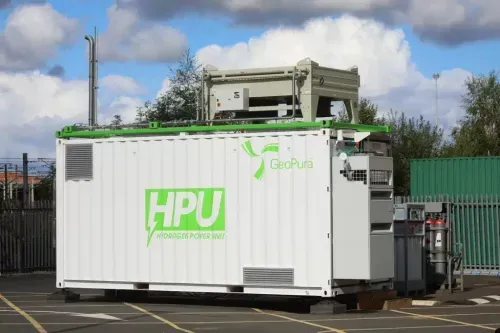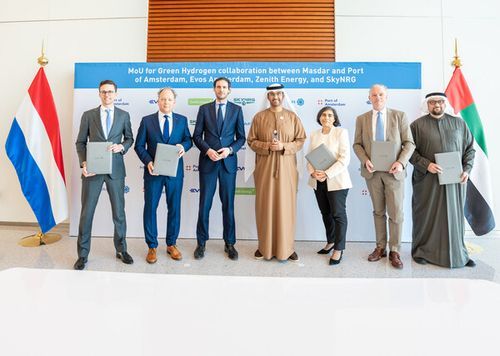Breakwall Capital is preparing to launch a $500m fundraising effort for a new fund – called Breakwall Energy Credit I – that will focus on investments in decarbonization as well as the traditional energy sector.
The founders of the new fund, Christopher Abbate, Daniel Flannery, and Jamie Brodsky, have spent the last 10 years making oil and gas credit investments at Riverstone Credit, while pivoting in recent years to investments in sustainability and decarbonization.
In addition to bringing in fresh capital, Breakwall will manage funds raised from Dutch trading firm Vitol, for a fund called Valor Upstream Credit Partners; and the partners will help wind down the remaining roughly $1bn of investments held in two Riverstone funds.
Drawing on their experience at Riverstone, Breakwall will continue to make investments through sustainability-linked loans across the energy value chain, but will also invest in the upstream oil and gas sector through Valor and the new Breakwall fund.
“We’re not abandoning the conventional hydrocarbon economy,” Flannery said in an interview. “We’re embracing the energy transition economy and we’re doing it all with the same sort of mindset that everything we do is encouraging our borrowers to be more sustainable.”
In splitting from Riverstone Credit, where they made nearly $6bn of investments, the founders of Breakwall said they have maintained cordial relations, such that Breakwall will seek to tap some of the same LPs that invested in Riverstone. The partners have also lined up a revenue sharing arrangement with Riverstone so that interests are aligned on fund management.
The primary reason for the spinout, according to Abbate, “was really to give both sides more resources to work with: on their side, less headcount relative to AUM, and on our side, more equity capital to reward people with and incent people with and recruit people with, because Riverstone was not a firm that broadly distributed equity to the team.”
Investment thesis
A typical Breakwall loan deal will involve a small or mid-sized energy company that either can’t get a bank loan or can’t get enough of a bank loan to finance a capital-intensive project. Usually, a considerable amount of equity has already been invested to get the project to a certain maturity level, and it needs a bridge to completion.
“We designed our entire investment philosophy around being a transitional credit capital provider to these companies who only needed our cost of capital for a very specific period of time,” Flannery said.
Breakwall provides repayable short-duration bridge-like solutions to these growing energy companies that will eventually take out the loan with a lower cost of capital or an asset sale, or in the case of an upstream business, pay them off with cash flow.
“We’re solving a need that exists because there’s been a flock of capital away from the upstream universe,” he added.
Often, Breakwall loan deals, which come at pricing in the SOFR+ 850bps range, will be taken out by the leveraged loan or high yield market at lower pricing in the SOFR+ 350bps range, once a project comes online, Abbate said.
Breakwall’s underwriting strategy, as such, evaluates a project’s chances of success and the obstacles to getting built.
The partners point to a recent loan to publicly listed renewable natural gas producer Clean Energy – a four-year $150m sustainability-linked senior secured term loan – as one of their most successful, where most of the proceeds were used to build RNG facilities. Sustainability-linked loans tie loan economics to key performance indicators (KPIs) aimed at incentivizing cleaner practices.
In fact, in clean fuels, their investment thesis centers on the potential of RNG as a viable solution for sectors like long-haul trucking, where electrification may present challenges.
“We are big believers in RNG,” Flannery said. “We believe that the combination of the demand and the credit regimes in certain jurisdictions make that a very compelling investment thesis.”
EPIC loan
In another loan deal, the Breakwall partners previously financed the construction of EPIC Midstream’s propane pipeline from Corpus Christi east to Sweeny, Texas.
Originally a $150m project, Riverstone provided $75m of debt, while EPIC committed the remaining capital, with COVID-induced cost overruns leading to a total of $95m of equity provided by the midstream company.
The only contract the propane project had was a minimum volume commitment with EPIC’s Y-Grade pipeline, because the Y-Grade pipeline, which ran to the Robstown fractionator near Corpus Christi, needed an outlet to the Houston petrochemical market, as there wasn’t enough export demand out of Corpus Christi.
“So critical infrastructure: perfect example of what we do, because if your only credit is Y-Grade, you’re just a derivative to the Y-Grade cost of capital,” Abbate said.
Asked if Breakwall would look at financing the construction of a 500-mile hydrogen pipeline that EPIC is evaluating, Abbate answered affirmatively.
“If those guys called me and said, ‘Hey, we want to build this 500-mile pipeline,’ I’d look at it,” he said. “I have to see what the contracts look like, but that’s exactly what type of project we would like to look at.”







